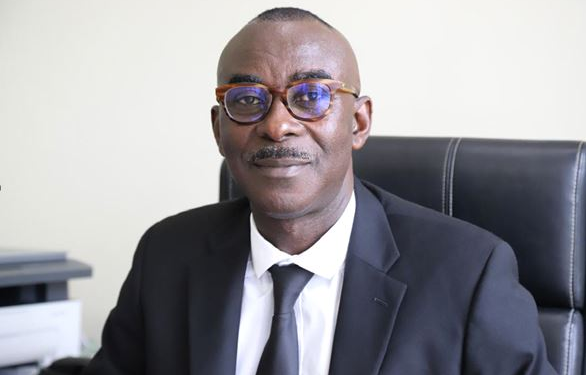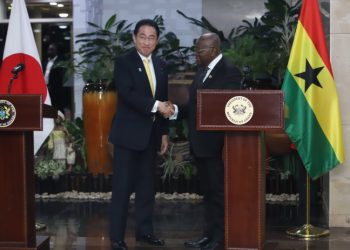
The Acting Chief Executive of the Ghana Chamber of Mines, Ahmed Nantogmah, is demanding the passage of a law to regulate how mineral royalties are used at the local level.
He said that without such a legal framework, communities hosting mining operations will continue to suffer from underdevelopment despite the huge revenues they generate.
Speaking on JoyNews’ PM Express Business Edition on Thursday, May 22, Nantogmah was emphatic: “We need an act or a law that will regulate the utilisation of mineral royalties.”
He argued that while mining companies are often blamed for underdevelopment in mining communities, the real issue lies with the misuse of royalties by local authorities.
“There’s a broad argument that development is in the hands of the state. That’s true. But mining companies do a lot in their communities,” he said.
“You go to some communities, and the schools there, the hospitals there, are run by mining companies.”
Mr Nantogmah questioned why assemblies receiving royalties still return to the companies asking for help with basic infrastructure.
“If there’s a one-kilometre road in town and there’s an assembly that gets mineral royalties, why would the assembly go back to a company like Gold Fields and say, come and develop the road for me?”
[embedded content]He noted that Gold Fields had constructed over 33 kilometres of road for one such community, even though the funds to do that work were supposed to have already been provided through mineral royalties.
“We are saying that. So that’s why we are also asking for a law,” he said.
“We know there’s one in the petroleum revenue management. Why can’t we do something for mining—for mineral revenue management?”
He proposed a mineral revenue law that would clearly define what royalties can be used for.
“For instance, if the law stipulates that mineral royalties can be used only for health, education, and sanitation, then you are bound by law to use it for that,” he said.
“Otherwise, it goes to the community, and nobody knows where it enters.”
Mr Nantogmah questioned whether royalty returns to host towns like Obuasi are being properly utilised.
“Obuasi—with the mining company there—I think a lot of royalties are supposed to come back. The question is, do they come back? And if they do, what are they being used for?”
He insisted that the lack of transparency and accountability in how these funds are managed is undermining development.
“So the question we ask of the mining companies must also be asked about the development authorities,” he stressed.
He said the state cannot expect mining companies to handle planning and development functions that clearly fall under local governance.
“If the town is not properly planned, it’s not the job of the mining company to make the street straight or to build skyscrapers. That’s mineral revenue.”
He referenced a recent study which revealed that about 80% of mineral benefits remain in Accra and are used to develop the rest of Ghana.
“Ghana is developing on the back of mining. But if you single out a local community and you bring the mining company in that community, well, you might have a point,” he said.
“But we also have to blame the people responsible for development.”
He called for a national conversation about whether royalty amounts are sufficient, how they are shared, and whether the system must tie revenue to specific projects.
“That’s why we think it should be done,” he concluded.
DISCLAIMER: The Views, Comments, Opinions, Contributions and Statements made by Readers and Contributors on this platform do not necessarily represent the views or policy of Multimedia Group Limited.
DISCLAIMER: The Views, Comments, Opinions, Contributions and Statements made by Readers and Contributors on this platform do not necessarily represent the views or policy of Multimedia Group Limited.
- President Commissions 36.5 Million Dollars Hospital In The Tain District
- You Will Not Go Free For Killing An Hard Working MP – Akufo-Addo To MP’s Killer
- I Will Lead You To Victory – Ato Forson Assures NDC Supporters
Visit Our Social Media for More




